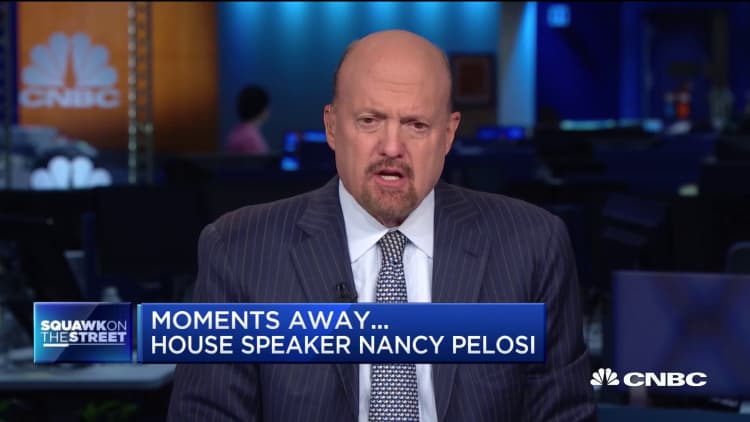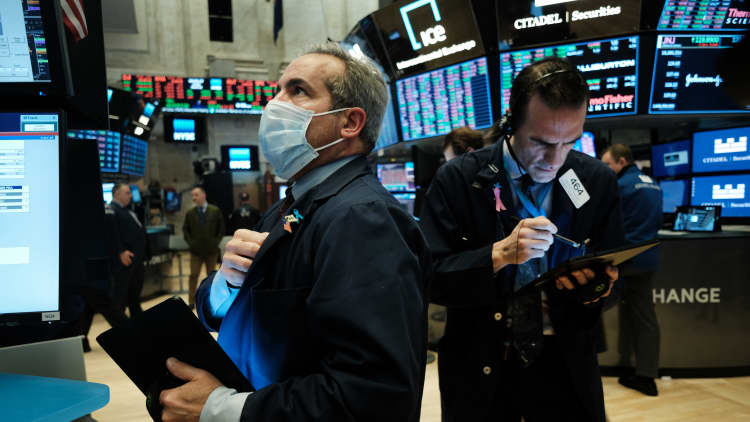
CNBC's Jim Cramer said Thursday that the strong start by U.S. stocks in August may come to an end if Washington lawmakers do not reach an agreement on another coronavirus relief package.
"If we don't have a deal, we've got to have a sell-off," Cramer said on "Squawk on the Street." "It's not like we can just avoid a deal and say it doesn't matter. And that's what I'm getting concerned about."
Democratic leaders and Trump administration officials have been negotiating on Capitol Hill for days in an attempt to reconcile a host of differences on issues such as a federal supplement to unemployment insurance, aid to states and local governments, and an eviction moratorium for government-backed housing. Republicans also have been pushing for liability protections for businesses and schools.
Wall Street has been closely eyeing these negotiations as the coronavirus crisis continues to present risks to the U.S. economic recovery. The Dow Jones Industrial Average and the S&P 500 entered Thursday on four-day win streaks while the Nasdaq Composite has been positive for six straight sessions, setting record highs along the way.
Stocks were set to open lower Thursday but turned slightly positive after the release of weekly jobless claims, which hit their lowest level of the pandemic era at 1.186 million last week. Although it was decidedly better than expectations, the figure still represented the 20th straight week that initial jobless claims eclipsed 1 million, far above levels seen before the pandemic.
Additionally, the 31.3 million Americans who are receiving some form of unemployment insurance, according to unadjusted data as of mid-July, are no longer getting the $600-per-week federal supplement, which expired at the end of last month. That program, created as part of the $2.2 trillion CARES Act in March, has been a critical lifeline for many in helping them pay their bills. Economists also believe it's helped spur consumer spending and create jobs.
Senate Majority Leader Mitch McConnell told CNBC on Thursday that he believes both Republicans and Democrats have a "desire" to reach an agreement. However, the Kentucky Republican did not say on "Squawk on the Street" when he thinks a deal will be made.
"Exactly when that deal comes together I can't tell you, but I think it will at some point in the near future," said McConnell, who contended that a key sticking point is how much government aid is "appropriate at this particular juncture."
House Speaker Nancy Pelosi, the chief Democratic negotiator along with Senate Minority Leader Chuck Schumer, D-N.Y., also told CNBC she expects a deal to be reached. "Will we find a solution? We will," Pelosi told CNBC. "Will we have an agreement? We will."
White House chief of staff Mark Meadows, who alongside Treasury Secretary Steven Mnuchin have led the talks with Democrats, said Wednesday that President Donald Trump was prepared to take executive actions if a broader relief package cannot be struck.
-- CNBC's Jacob Pramuk contributed to this report.



